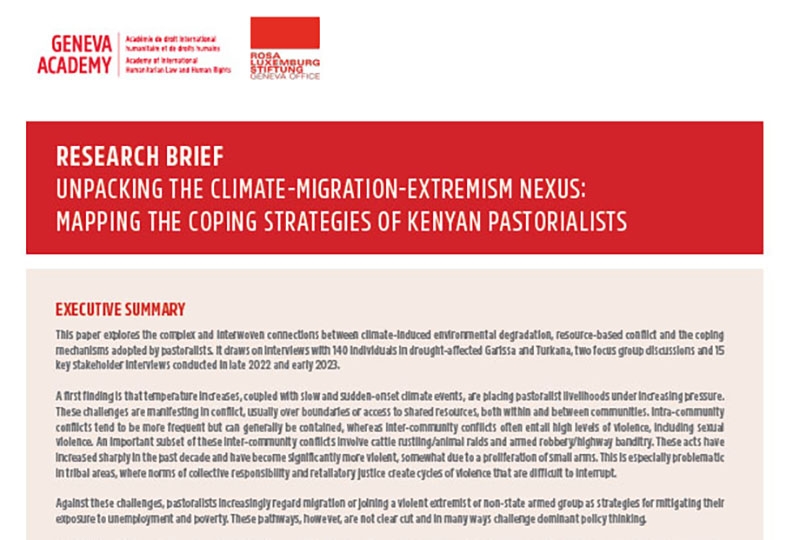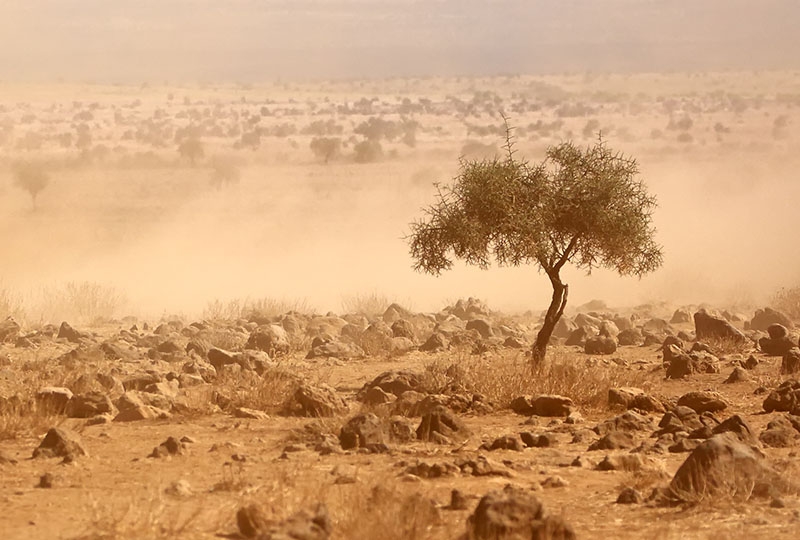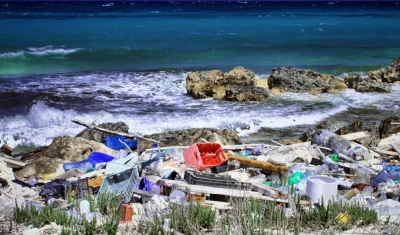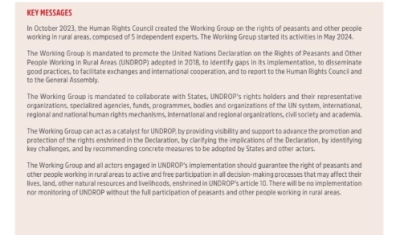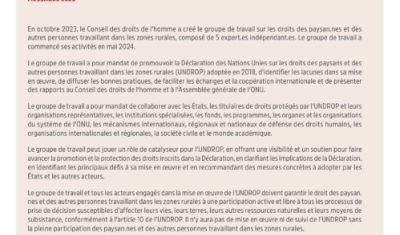Dr Harper explained, ‘A vast majority of the most impacted pastoralists have a strong preference to remain on their land for as long as this is viable. For those that view migration positively, a rural area, either in their own or another country, is judged preferable to an urban location’.
In terms of addressing these phenomena, the research found that ‘climate-proofing’ pastoral livelihoods is the preferred course of action for affected individuals, and the one most likely to protect against armed groups capitalizing on community vulnerabilities. ‘The irony is that while adaptation and mitigation assistance is sorely needed in locales such as Garissa and Turkana, these are the places to which it is not flowing. Challenges around technology transfer and uptake need to be prioritized and overcome’, noted Dr Harper.
This research forms part of a broader project on Forgotten Threats in Climate-Food Insecurity, sponsored by the Rosa-Luxemburg-Stiftung. Other themes addressed under the project include damage to food systems during armed conflict and the risks associated with large-scale land leasing and resource extraction contracts.


